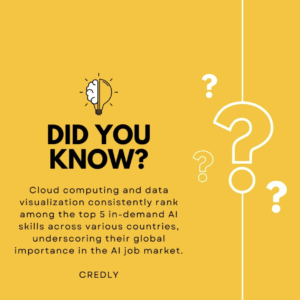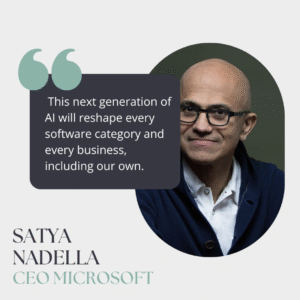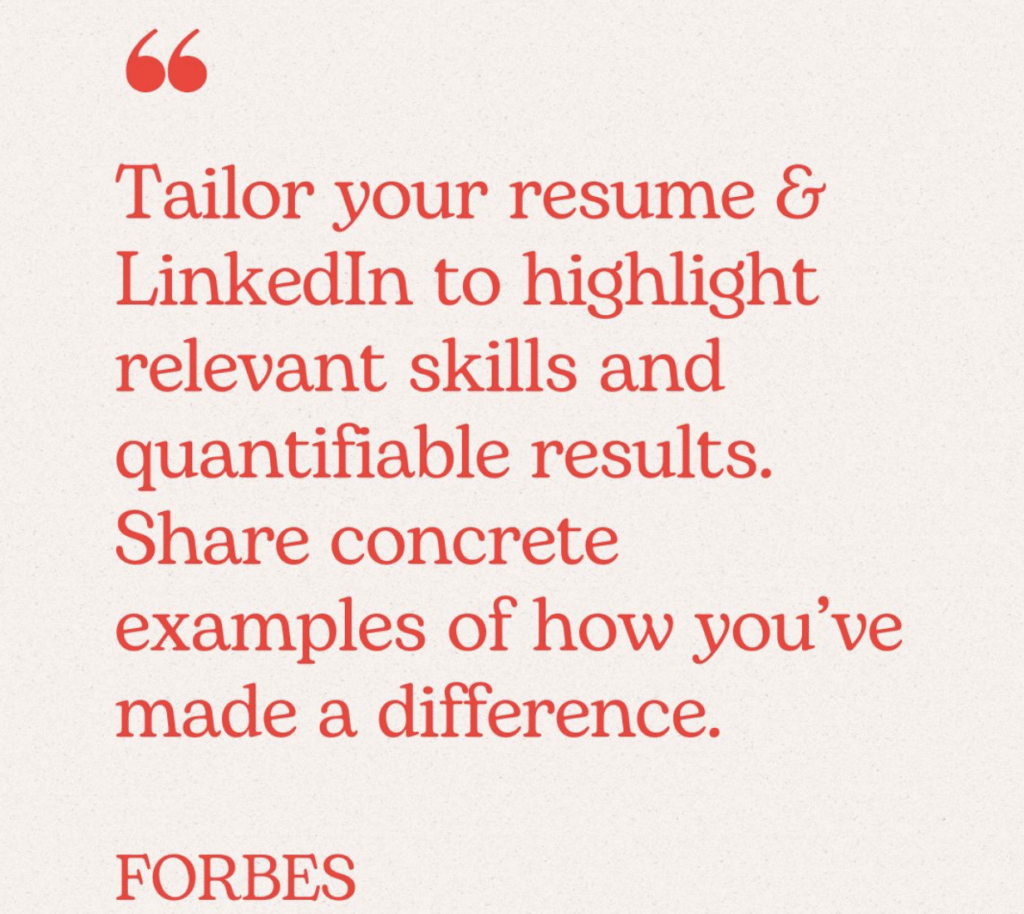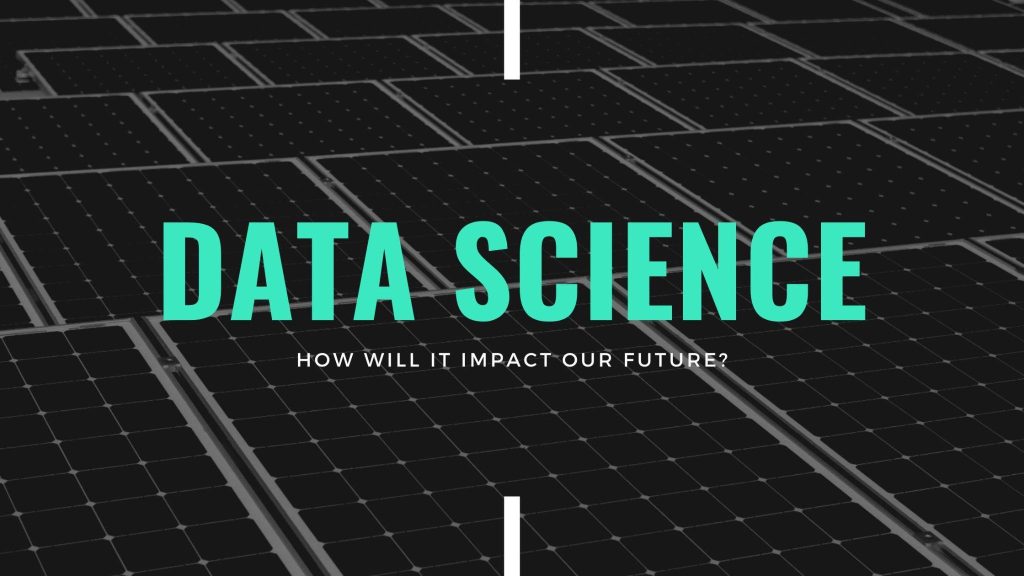
Artificial intelligence isn’t some distant future—it’s already reshaping industries and Africa is no exception.
Across the globe, businesses are integrating AI to optimize operations, enhance decision-making and improve efficiencies.
Companies worldwide are desperate for AI talent.
The demand for machine learning engineers, data scientists and AI specialists is growing faster than the available talent, creating massive opportunities for people to invest in the right skills.
Unlike traditional career paths, AI roles offer remote work options.
This means skilled workers in Africa can access global job markets without leaving their home countries.
This promotes a healthy work-life balance and eliminates the need for expensive relocations to foreign nations.
With AI jobs offering access to a global client base, Africans have the opportunity to compete on an international stage.
According to the US Bureau of Labor Statistics the average annual salary for a data scientist in the US is around $100,000, while experienced AI engineers earn significantly more.
This might be far-fetched for remote workers in Africa.
But even for entry-level starters on freelance platforms like Fiverr, Upwork and Toptal, earnings far exceed local salary averages.
One of the biggest advantages of an AI career is the constant opportunity for learning and growth.
This constant innovation ensures individuals stay intellectually engaged with opportunities to upskill regularly.
It’s one of the few industries where expertise compounds quickly, leading to a surge up the career chain.

AI Career Paths
Technical Roles
- Machine Learning Engineer: These professionals build AI models that power recommendation engines, fraud detection systems and self-driving cars. A strong foundation in Python, TensorFlow and deep learning is essential.
- Data Scientist: Analyzes large datasets, extract patterns and develop predictive models. Finance and healthcare companies rely heavily on them to make critical decisions.
- AI Researcher: This job focuses on moving AI forward—developing new algorithms, improving neural networks and solving complex problems. Many people in this role work in tandem with prestigious universities and tech giants.
- Computer Vision Engineer: Facial recognition, medical imaging and self-driving cars depend on experts in this field. They develop AI that processes and interprets images and videos.
- Natural Language Processing (NLP): Engineer/Voice assistants, chatbots and translation tools are built by NLP engineers who train AI to understand human language.
Non-Technical Roles
- Al Product Manager: Bridges the gap between tech and businesses. The person manages AI-powered products from concept to launch, ensuring alignment with consumer needs.
- AI Business Consultant: This individual helps companies integrate AI into operations, whether by automating workflows or enhancing customer experiences.
- AI Prompt Engineer: These professionals craft precise prompts to optimize AI-generated responses, improve chatbot interactions and content generation.
- AI Sales & Marketing Specialist: Promote AI-driven solutions and break down technical concepts into simple terms for potential investors and buyers.
- AI Ethicist: As AI adoption grows, so does the need for ethical oversight. These experts make sure AI systems are fair, unbiased and responsible.
Industries Hiring AI Talent
- Tech companies like Google, Microsoft, OpenAI and countless startups are constantly expanding their AI teams.
- Healthcare AI assists in early disease detection, robotic surgeries and personalized treatment plans.
- Finance/Banks use AI to detect fraudulent transactions and assess credit risk. Hedge funds rely on AI-driven algorithms for high-frequency trading.
- E-commerce/Retail giants like Amazon deploy AI for product recommendations and customer service chatbots.
- Agriculture/Farmers benefit from AI-driven tools for soil analysis, pest detection and yield predictions.
Breaking into AI means acquiring the right skills, it’s not a laundry list of buzzwords
Every role demands a different mix of knowledge, so the goal is to focus on what actually matters for where you want to go.

Core AI Skills
- Programming Languages: Python dominates and for good reason. It’s beginner-friendly and widely-used in AI. It also has libraries like TensorFlow and PyTorch. R is useful for statistical computing and SQL is essential for managing databases.
- Mathematics & Statistics: AI runs on numbers. Linear algebra powers neural networks and probability helps with decision-making. Optimization ensures models work efficiently.
- Machine Learning Fundamentals: Supervised learning is about training models on labeled data ( fraud detection). Unsupervised learning finds patterns without labels (customer segmentation). Deep learning is the backbone of AI and mimics decision-making with neural networks.
- Data Handling & Processing: Real-world data is messy. Knowing how to clean, visualize and analyze it separates pros from amateurs. Using tools like Panda and Matplotlib make it easy.
- Cloud Computing: Companies rely on platforms like AWS, Google Cloud and Microsoft Azure for large-scale AI models. Understanding cloud tools makes deployment faster and easier.
- AI Ethics & Bias Awareness: AI isn’t neutral—it reflects data it learns from. Knowing to reduce bias and ensure fair outcomes is crucial especially in high-stake fields like healthcare and finance.
Skills for Non-Technical Roles
- AI for Business: Understanding how AI improves efficiency, automates tasks and helps professionals leverage it without writing code.
- Product Management: AI products follow a different life cycle than traditional software. Knowing how to integrate AI into product strategy and measure performance is important.
- AI Writing & Communication: Explaining AI to non-experts is an underrated skill. Whether through documentation,reports or marketing, clear communication builds trust and acceptability.
- Basic Data Literacy: Even non-technical roles benefit from understanding data. Recognizing trends and interpreting AI-generated reports enhances decision-making across industries.
Where to Learn AI Skills for Free or Cheaply
Online Courses
- Coursera: Andrew Ng’s AI and Machine Learning courses.
- Udacity: Programs that focus on practical AI applications.
- DataCamp: Hands-on coding exercises for AI and data science topics.
YouTube Channels
- FreeCodeCamp: Free AI and machine learning courses.
- AI with Lex Fridman: Includes interviews with AI experts discussing real-world applications.
AI Bootcamps & Certifications
- Google AI and IBM: Free online certifications.
- Microsoft Learn: Structured training on AI-related cloud computing.
Books & Research Papers
- Deep Learning by Ian Goodfellow is a must-read for anyone serious about AI.
AI-focused blogs like OpenAI updates and Towards Data Science provide industry insights and tutorials.

Making it Stick: What to Include in Your AI Portfolio
Hiring managers don’t just scan for programming skills; they look for proof that you are solving real-life problems.
Always choose projects that demonstrate your creativity, technical ability and practical impact.
For example:
- 1. Machine Learning Models: Train a model on real datasets to predict stock prices, classify medical images or detect spam emails. Employers like seeing models that proffer solutions to industry-relevant problems.
- 2. AI Chatbots: Create a chatbot using NLP techniques with spaCy or TensorFlow. Build one that answers customer support queries or helps students with math problems. Deploy it on telegram or integrate it into a website.
- 3. Computer Vision Applications: Train a deep learning model for tasks like face recognition, object detection or handwriting analysis. Use OpenCV or TensorFlow for implementation and prepare a live demo of your model processing images or video.
- 4. Data Visualization Dashboards: Build an interactive dashboard using Python’s Dash or Tableau, showcasing trends from a dataset. A well-designed dashboard is always easy to comprehend and understand.
- 5. AI for Social Good: AI has huge potential for providing solutions to perennial problems. Consider projects like crop disease detection for African farmers or AI-powered language translation tools.
Where to Showcase Your Work
- GitHub: Upload code with clear documentation and a well-structured README file.
- Kaggle: Participate in competitions and add notes showing your data science skills.
- Medium and LinkedIn: Write about your AI journey, breaking down how you built your projects.
- Personal Website: A portfolio site centralizes your projects. Make it seamless for employers to view your work in one place.
Finding Remote AI Jobs in Africa
- Freelance Platforms: Upwork, Fiverr, Turing, Toptal
- Remote Job Boards: RemoteOk, We Work Remotely, AngelList
- AI-Specific Boards: ai-job.net, TensorFlow Jobs
- LinkedIn and Networking: Many AI roles aren’t posted publicly. Engage AI professionals and showcase your projects.
How to Structure Your Resume
Your resume should be results-driven.
Instead of listing skills, show how you applied them.
Bad Example: Proficient in Python and TensorFlow
Good Example: Developed a predictive model that reduced processing time by 40% and improved operational efficiency.
Preparing for AI Job interviews
- Technical Questions: Brush up on algorithms, data structures and ML concepts. Expect coding challenges and questions about model selection, overfitting and hyperparameter tuning.
- AI Case Studies: You may be asked how to solve a business problem using AI. Practice explaining how you’d build a fraud detection system or optimize ad targeting.
- Soft Skills and Remote Work Readiness: Employers value communication skills. Can you explain AI concepts to non-technical stakeholders?
Final Thoughts
A strong portfolio and a well-crafted job search strategy helps you unlock remote AI roles.
Focus on building impactful projects, showcasing them in the appropriate places and preparing for interviews with real-world solutions in mind.
AI is competitive, but with the right approach, opportunities are always within reach.
Breaking into AI might feel overwhelming, especially when faced with financial barriers, no mentorship or limited access to top-tier training.
But real success stories show these challenges are surmountable.
About TalentMakers Foundation
TalentMakers Foundation is a non-profit organization dedicated to empowering young Africans with in-demand tech skills and global career opportunities.
Our mission is to equip the next generation of African tech leaders with the skills they need to thrive in artificial intelligence, data science, cybersecurity and emerging technologies.
Apply for our human capacity developmental programs, become a mentor or support our initiatives today!


